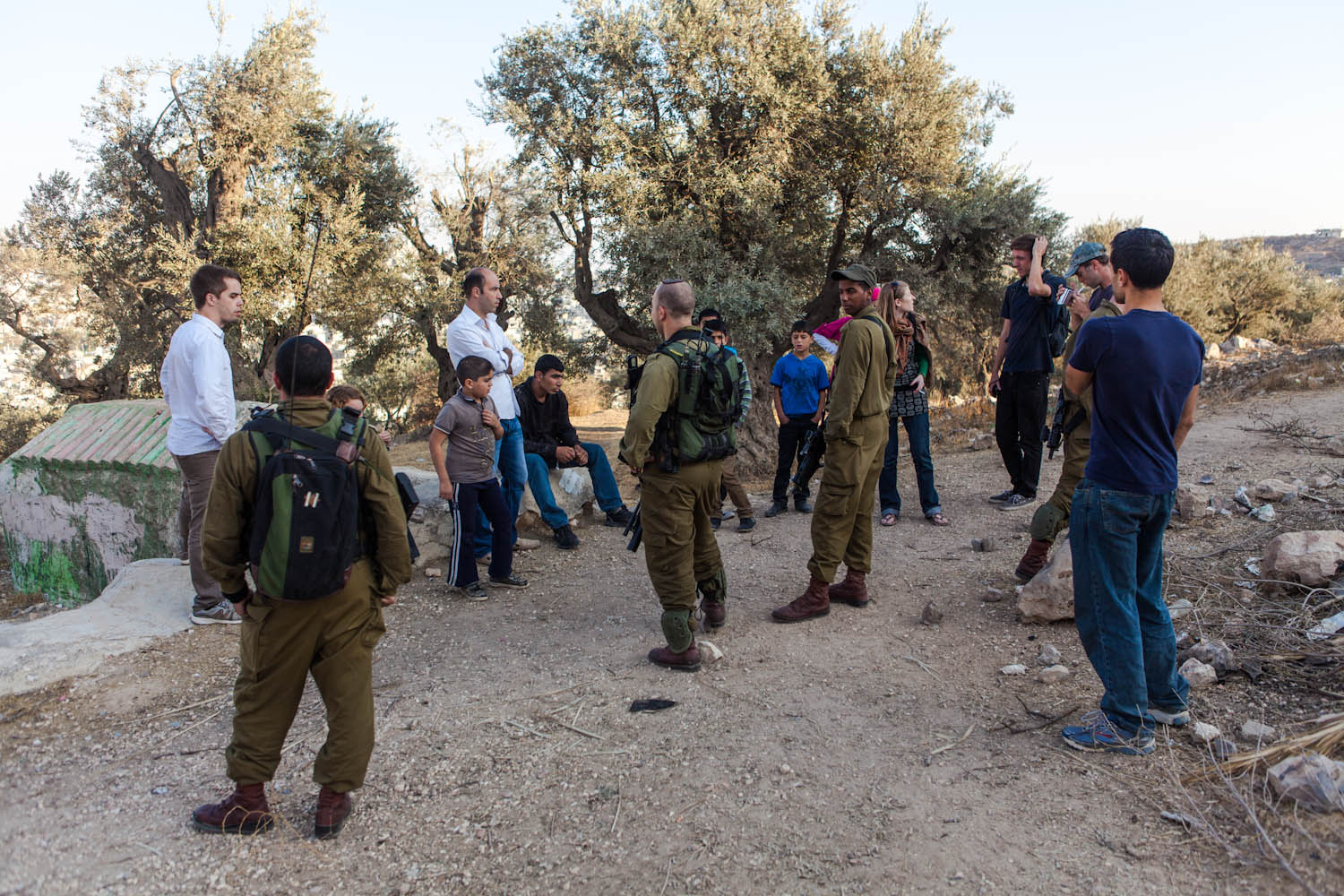Year: 2012
-
Settler harassment at Khan al-Luban [Update: Video added]
By Stephen Alexander 11 November 2012 | International Solidarity Movement, West Bank On Friday, the house at Khan al-Luban, south of Nablus was trespassed by settlers from the illegal settlement of Ma’ale Levona. The settlers attempted to destroy the water supply at the house. Earlier in the morning, house-owner Khalid al-Hamed, his two sons and…
-
Photo Essay: Demonstration in Nabi-Saleh
by David Langstaff 9th November 2012 | International Solidarity Movement, West Bank
-
Settler attacks Palestinian man in Hebron – Israeli soldiers look on
9th November 2012 | International Solidarity Movement, West Bank On Thursday in Hebron, Palestinian activist Imad Al Atrash was beaten by an illegal Israeli settler whilst two soldiers watched, without intervening. Imad reports that he was walking through an olive grove in Tel Rumeida when a man from a nearby illegal settlement shouted abuse at…


